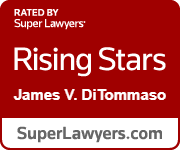Defending Your Rights
Cybersquatting
The internet is an unparalleled medium for marketing and promotion for businesses and individuals alike. Companies may create an online presence to market and advertise their products or services, and both companies and individuals can create online identities for business or creative purposes. An essential part of an online identity is the domain name, and companies may go to great lengths to protect their trademarks. Legal procedures prohibit “cybersquatting,” or the bad-faith use of a domain name to profit off someone else’s name or trademark. But even consumers who register a domain name with no fraudulent intent may find themselves the target of a cybersquatting claim. If you are the victim of cybersquatting, or have been accused of cybersquatting, you should consult a Chicago cybersquatting lawyer who knows the latest developments in these developing areas of practice.
What is Cybersquatting?
Cybersquatting refers to the practice of registering a domain name that matches, or closely resembles, the name of a company, individual, product, or other trademarked identity belonging to someone else, with the bad-faith intention of exploiting or profiting from the name’s value or goodwill. A cybersquatter might put content on a website that defames the rightful owner of the domain name, or might simply hold onto the domain name and offer it for sale to the rightful trademark owner at a significantly increased price.
Types of Cybersquatting
Registration of a trademarked name was more common in the early days of internet commerce, but it still happens. Domain name registration, which is handled by third-party companies, is usually for a defined period of time, after which it may automatically renew or expire. Cybersquatters might grab the domain names of companies who allow their registration to expire. Another common practice is “typosquatting,” registering domain names that are identical to a trademarked name, except for some spelling error.
Legal Procedures Related to Cybersquatting
U.S. trademark law generally applies to cybersquatting claims under the Anticybersquatting Consumer Protection Act (ACPA) of 1999, but many claims go through a private arbitration process rather than litigation. The Internet Corporation for Assigned Names and Numbers (ICANN) oversees domain name registration and enforces the Uniform Domain Name Resolution Policy (UDRP). Organizations like the World Intellectual Property Organization (WIPO) conduct arbitrations of cybersquatting claims under the UDRP.
Pursuing and Defending Against a Cybersquatting Claim
A claimant alleging cybersquatting must prove a valid trademark or similar proprietary interest in a domain name. The ACPA and UDRP require proof that the alleged cybersquatter acted in bad faith. A defendant may be able to assert “fair use,” an exception to federal copyright and trademark law, or may challenge the claimant’s proprietary interest in the domain name. Some cybersquatting claims are actually attempts to take a non-trademarked domain name from someone else, a process is known as “reverse domain hijacking.”
Nationwide Consumer Rights’ Chicago cybersquatting attorneys have represented plaintiffs around the country for decades, assisting them in claims for consumer fraud and other violations of consumer protection statutes. We help consumers assert their legal rights against much larger opponents, including defense against counterclaims for libel or defamation. To schedule a free and confidential consultation with a cybersquatting lawyer in the Chicago area, contact us today online or at 630-333-0000.








